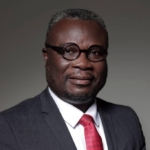
At the geographical center of Ghana, Kintampo, a different kind of conversation took place. Hon. Ken Ohene Agyapong used the platform of his Unity Tour not to trade political slogans, but to redefine how Ghanaians should think about their future.
His message was both direct and disarming: Ghana is not poor. What the country lacks is leadership that understands how to turn resources into prosperity.
Ken pointed to what stood before him, the Kintampo Falls and the nearby Fula Falls. These natural wonders, he explained, could be far more than tourist attractions.
Drawing lessons from Niagara Falls, where tourism has been developed into a global industry, he asked a question that cut to the heart of Ghana’s challenges: “If Niagara can power an economy, why can’t ours do the same for Ghana?”
The point was clear. Ghana does not suffer from scarcity but from underutilization. Fertile lands produce crops, but too often they leave the country raw. Minerals lie beneath the soil, yet too little value is created locally. Tourist sites inspire awe, but their potential remains untapped.
In Ken’s analysis, the true deficit is not in natural endowments, but in leadership capacity. “Any leader who runs to the IMF for aid has already failed,” he told the gathering, “because Ghana has more than enough to stand on its own.”
He then outlined a different model of growth, one anchored in agro-processing and tourism. Agro-processing, he argued, can transform Ghana’s agriculture into an industrial engine.
Cassava, maize, and fruits should not leave farms in their raw state; they should pass through factories that create finished goods for both local and global markets. This would not only increase value but also generate jobs, stimulate supply chains, and strengthen domestic industries.
Tourism, when developed with vision, has similar multiplier effects. Around waterfalls, parks, and heritage sites, entire ecosystems can grow hospitality, transport, crafts, energy, and technology. What today looks like leisure can tomorrow become an industry that drives revenue and broadens opportunity.
Kintampo itself became the metaphor for his argument. The British once used its rock pedestal as a guiding post, a marker for direction. Ken asked the crowd, “If others could find guidance from our land, why can’t we find prosperity in it?” The lesson was unmistakable: Ghana’s path forward lies in leveraging what it already has.
In the long arc of Ghanaian politics, few figures have embodied the combination Ken represents politician, entrepreneur, and philanthropist.
His entrepreneurial instincts bring pragmatism; his philanthropy reflects empathy; his political platform gives him reach. Together, they create a rare profile of leadership that is business-minded, people-centered, and action-oriented.
At Kintampo, the conversation shifted from promises to possibility. It was not about who carries a party’s flag, but about who can carry the nation into a future of independence and prosperity. In Ken Ohene Agyapong, many see the leader who matches vision with execution, and rhetoric with results.
At the center of Ghana, the nation’s future came into focus and it pointed to Ken Ohene Agyapong as the leader Ghana needs now.
